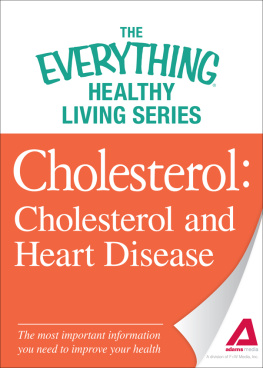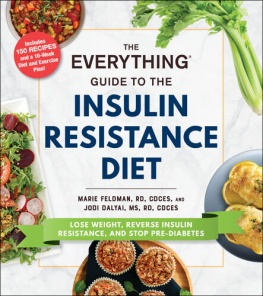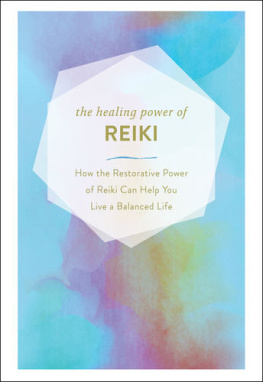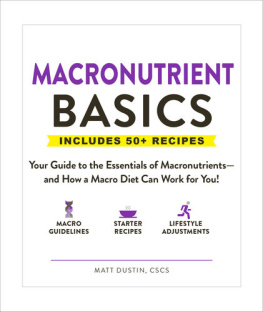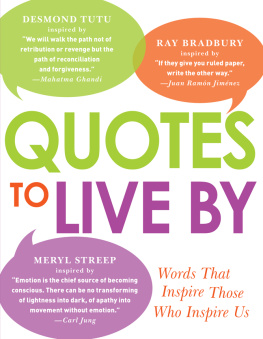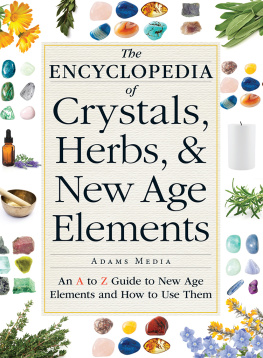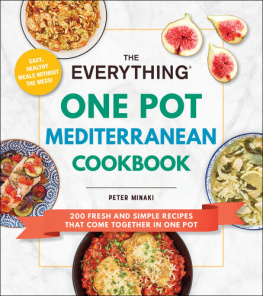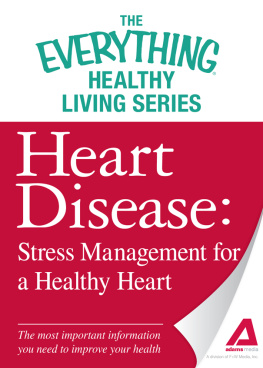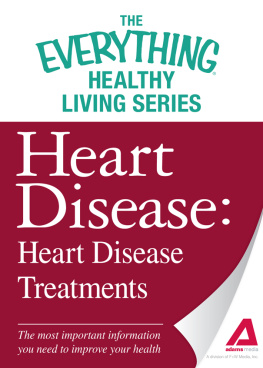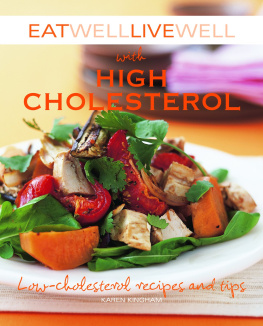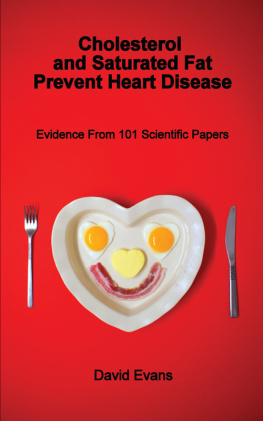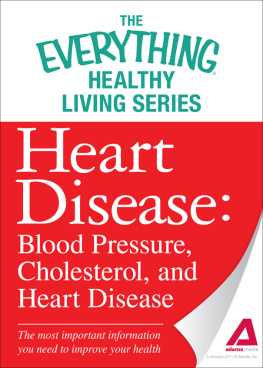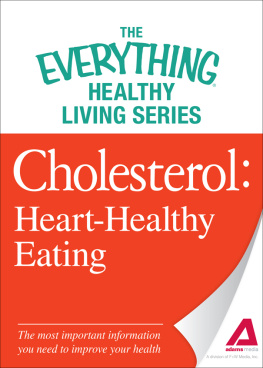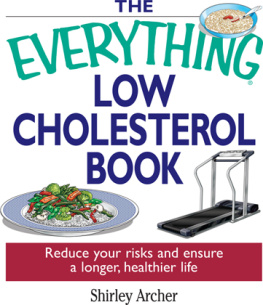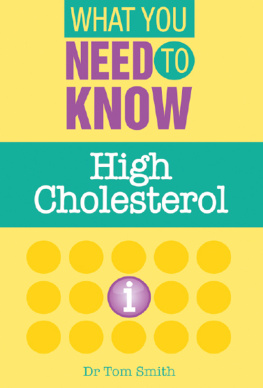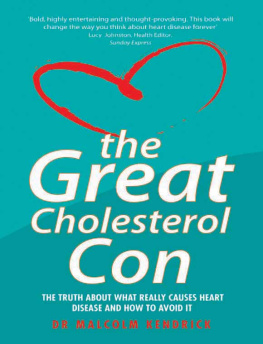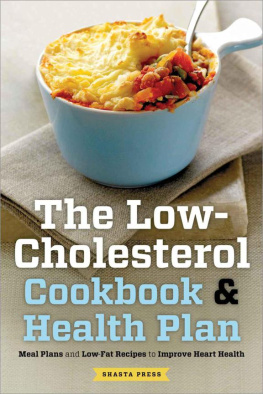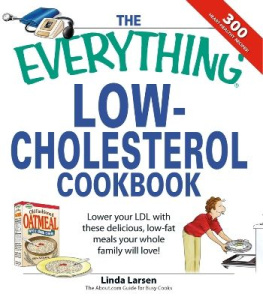Adams Media, a division of F+W Media, Inc.
For more than 10 years, millions of readers have trusted the bestselling Everything series for expert advice and important information on health topics ranging from pregnancy and postpartum care to heart health, anxiety, and diabetes. Packed with the most recent, up-to-date data, Everything health guides help you get the right diagnosis, choose the best doctor, and find the treatment options that work for you.
The Everything Healthy Living Series books are concise guides, focusing on only the essential information you need. Whether youre looking for an overview of traditional and alternative migraine treatments, advice on starting a heart-healthy lifestyle, or suggestions for finding the right medical team, theres an Everything Healthy Living Book for you.
Cholesterol
You may have heard of cholesterol. You may have even heard that it is bad. Every day it seems a new article comes out about what cholesterol does or what affects cholesterol. Not many people, though, know the full story.
Cholesterol over the years has earned a bad reputation. This reputation comes from cholesterol being known for decades to be a significant contributor to heart attacks, strokes, and other cardiovascular diseases. When people develop these debilitating and deadly diseases at a young age, cholesterol is often a factor. By understanding and managing cholesterol, you can avoid premature death and disability.
Cholesterol in excess builds up in your arteries, the blood vessels that deliver oxygen and nutrients to your brain. When these arteries get too clogged, parts of your organs cannot receive what cells need to survive. If this happened in the blood vessels to your brain, you would suffer a stroke, or in the blood vessels to your heart, a heart attack. These diseases can leave you disabled, paralyzed, or even kill you.
What you might not know is that you can recruit cholesterol to be on your side. There are different types of cholesterol; some clog arteries, but others clean up arteries. If you know how to lower the bad type and increase the good type, you can significantly prevent clogging or even unclog your arteries, reducing your chance of suffering heart attacks and strokes.
To start to manage your cholesterol, you need to get tested beginning at a fairly young age. These tests require repeating every few years, and if you are higher-risk, you may need testing more often to determine the proper treatment. This knowledge will help to guide you as you implement changes in your life to improve your cholesterol.
Cholesterol can be greatly influenced by your diet, physical activity, whether or not you smoke, your weight, and your levels of stress. By making certain changes in these areas, you can reduce your chance of early death and disability. Simple changes, such as eating fewer calories and bad fats in exchange for more fiber, nutrients, and good fats, can tremendously influence your cholesterol levels. Even a modest amount of physical activity a few days a week, no matter what the activity, can have a huge impact. Not smoking and reducing stress can reduce your bad cholesterol and raise your good cholesterol.
The changes that help your cholesterol can also reduce your risk for cardiovascular disease, as well as lower your blood pressure, weight, and blood sugar risks. Also, such changes in your lifestyle will give you more energy and an improved mood, improving the quality of your life.
Over the past twenty years, significant progress has been made in developing medications that improve cholesterol levels and reduce the chance of cardiovascular disease. These medications can create negative side effects, but the benefits may outweigh the risks.
Overall, by understanding cholesterol, how it acts, what you can do to manage it, and how to implement those actions, you can influence your future health tremendously, while potentially improving your current life.
If youd like to learn more about cholesterol, check out The Everything Low Cholesterol Book, 2nd Edition , available in print (978-1-4405-0551-5) and eBook (978-1-4405-0552-2) formats.
What Is Cholesterol?
You dont need to be a scientist to understand what cholesterol is and how to effectively manage your cholesterol levels for better health. You just need to care about your health. Take a moment to consider what is happening on the inside of your body to keep you alive. While most people take for granted that they dont need to think about the constant maintenance of their bodies, there are millions of processes working constantly to sustain their lives. Cholesterol is an essential part of this life process. Cholesterol keeps you going but can also stop you dead in your tracks. The better you understand cholesterol, the better you can choose which of these results will occur.
This Little Molecule
Cholesterol is a necessary and natural part of each and every cell in the human body and in the bodies of other animals. Cholesterol helps to maintain the structure of the walls of cells and works to keep brains healthy. The liver uses cholesterol as raw material to create important hormones such as adrenalin and sex hormones and to manufacture digestive enzymes such as bile acids that break down fats. Cholesterol is integral to thinking and sexual activity as well as innumerable other bodily functions.
Fact
Most gallstones that are formed in the gallbladder are composed primarily of cholesterol. The liver responds to the presence of dietary fat by producing cholesterol to synthesize bile to digest the fats. If you eat too much fat, the liver may overproduce cholesterol, leading to the formation of gallstones.
A healthy liver makes cholesterol, a waxy lipid, or fatlike substance. In addition, you also acquire cholesterol from the food you eat. The big picture, however, is not quite so simple. Many other factors influence your cholesterol levels. Even if you are a vegetarian and dont eat foods that contain cholesterol, you will still have plenty of cholesterol in your body. Depending on the type of cholesterol and how much of each type, this can be a good or a bad thing.
Factors Affecting Cholesterol
Total cholesterol is the sum total of all the cholesterol in your bloodstream at a given time. There are different types of cholesterol, such as high-density lipoproteins (HDLs) and low-density lipoproteins (LDLs), which make up the total amount. Density refers to the weight of the lipoprotein. If cholesterol is HDL that means it is very compact, while if it is LDL that means it is less compact and more loose. In general, HDL is good cholesterol and LDL is bad cholesterol.
Several factors affect the total cholesterol levels in your bloodstream. These factors include the following:
- What you eat: Foods that come from animals, such as meats and eggs, contain cholesterol that you then absorb as well as saturated fats, which can convert into cholesterol in your body. Trans fats, contained in processed foods, are also converted into cholesterol.
- Whether you are overweight: Generally, the more fat you have, the more cholesterol you have. Therefore, weight loss can often lead to cholesterol loss.

